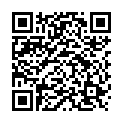|
|
|
| Module code: MAIM-140 |
|
|
4V (4 hours per week) |
|
5 |
| Semester: 1 |
| Mandatory course: yes |
Language of instruction:
English |
Assessment:
Student presentation and written exam
[updated 20.03.2010]
|
MAIM-140 (P420-0277) International Management, Master, ASPO 01.10.2011
, semester 1, mandatory course
|
60 class hours (= 45 clock hours) over a 15-week period.
The total student study time is 150 hours (equivalent to 5 ECTS credits).
There are therefore 105 hours available for class preparation and follow-up work and exam preparation.
|
Recommended prerequisites (modules):
None.
|
Recommended as prerequisite for:
MAIM-310 International Management Seminar
[updated 06.07.2011]
|
Module coordinator:
Prof. Dr. Leonhard Firlus |
Lecturer:
Prof. Dr. Leonhard Firlus
[updated 20.03.2010]
|
Learning outcomes:
The course aims to convey to students a thorough understanding of the causes and effects of trade and capital flows in a global economic environment.
After being introduced to the main elements of an analysis of international economics, students will become acquainted with the options and limitations of economic policies in open economies. The analysis will be carried out within the framework of current EU and WTO regulations. In order to make students aware of problems and issues that go beyond the European horizon, the course will also address some of the major problems faced by developing countries.
[updated 20.03.2010]
|
Module content:
- International trade theory and policies
- International monetary theory
- The macroeconomics of open economies
- Economic assessment of the European Union including the transition process in Eastern Europe
- The economics of developing countries
[updated 20.03.2010]
|
Teaching methods/Media:
The course comprises lectures and group work and demands a high level of student participation. Students will be expected to prepare and present small pieces of work on selected topics in international economics.
[updated 20.03.2010]
|
Recommended or required reading:
- Krugman, Paul / Obstfeld, Maurice: International Economics, Addison-Wesley, Reading Mass., latest edition
- Jones, Robert A. The Politics and Economics of the European Union, Edward Elgar Publishing, Cheltenham 2001
- Meier, Gerald M. / Rauch, James E.: Leading Issues in Economic Development, 7th ed., Oxford University Press, Oxford 2000
- Salvatore, Dominick: International Economics, 7th ed., John Wiley & Sons Inc., New York, 2001
[updated 20.03.2010]
|


